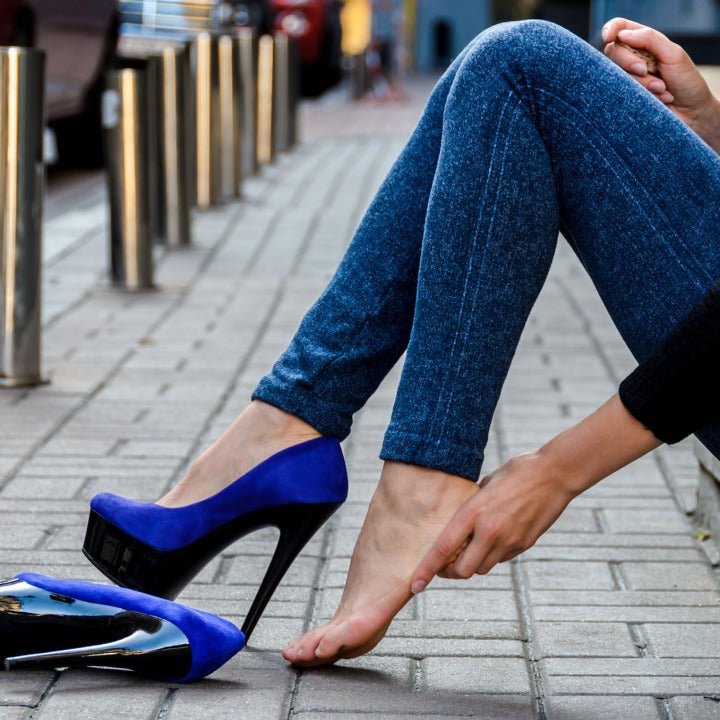
Step Pain-Free: Alleviating Heel Pain With the Right Footwear
Share
Step Pain-Free: Alleviating Heel Pain With the Right Footwear
Do you ever wake up in the morning and feel a sharp, stabbing pain in your heel with your first step? Or perhaps you experience discomfort during or after activities like running, standing for long periods, or walking? Heel pain can be debilitating and frustrating, but the good news is that with the right footwear and a few simple steps, you can take control and alleviate that persistent pain. Please note that while we are not professional foot doctors, our knowledge is based on experience and we're here to offer some guidance.
Understanding Heel Pain: Heel pain can stem from various activities and conditions. Plantar Fasciitis, Achilles Tendinitis, heel spurs, and overpronation are common culprits. These issues can be caused by activities like running on hard surfaces, standing for prolonged periods, wearing unsupportive shoes, or even gaining weight.
Footwear Matters: One of the most significant factors contributing to heel pain is wearing improper footwear. Your choice of shoes plays a crucial role in preventing and alleviating pain. Here's what to look for:
-
Arch Support: Seek shoes with proper arch support. This feature helps distribute your weight more evenly, reducing stress on your heels.
-
Cushioning: Look for footwear with adequate cushioning in the heel area. This cushioning absorbs shock, making each step less jarring on your feet.
-
Heel Cup: A deep, well-cushioned heel cup can cradle your heel and provide stability. This is especially important for people with plantar fasciitis.
-
Orthotic Inserts: Consider adding orthotic inserts or custom insoles to your shoes. These can provide additional support tailored to your foot's unique needs.
-
Proper Sizing: Make sure your shoes fit correctly, with enough room in the toe box and secure heel support.
Alleviating Heel Pain:
-
RICE Method: Rest, Ice, Compression, and Elevation can help reduce inflammation and pain.
-
Stretching Exercises: Gentle calf and Achilles stretches can improve flexibility and alleviate tension in the heel area.
-
Anti-Inflammatory Medications: Over-the-counter NSAIDs can provide temporary relief from inflammation and discomfort.
-
Heel Pads: These can provide extra cushioning and support within your shoes.
-
Gradual Activity Increase: If you're an athlete, ensure a gradual increase in activity to prevent overuse injuries.
-
Physical Therapy: Consider consulting a physical therapist who can recommend exercises and treatments tailored to your condition.
-
Supportive Night Splints: Wearing a night splint can keep your foot dorsiflexed, which helps stretch the plantar fascia overnight.
Remember that everyone's experience with heel pain is unique. What works for one person may not work for another. It's essential to listen to your body and consult with a healthcare professional or podiatrist for a proper diagnosis and tailored treatment plan. By making informed choices about your footwear, gradually increasing activity levels, and employing some of these self-help strategies, you can significantly improve your chances of alleviating heel pain and get back to the activities you love.
